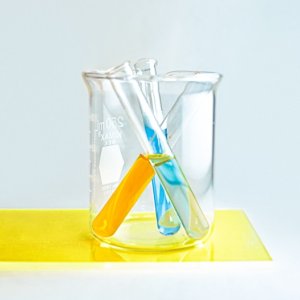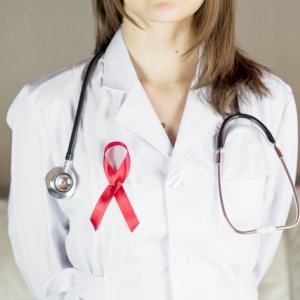Benchmark of Innovation Delivers First COVID-19 Vaccine

STORY INLINE POST
Q: Innovation is one of Pfizer’s core values and those efforts stand out with the production of a COVID-19 vaccine. What sets this vaccine apart from others?
A: From the beginning of the pandemic, we were clear this was not a race between pharmaceutical companies but a race against the virus. Although for Pfizer to create a vaccine against COVID-19 represented a great challenge, having at hand scientific innovation of this caliber was not fortuitous but the result of our over 170 years of innovative vocation.
Alongside BioNTech, Pfizer worked at unprecedented speed to develop, test and manufacture vaccines based on messenger RNA technology. These vaccines teach our cells to produce a specific protein that triggers an immune response capable of generating antibodies to prevent COVID-19 infection. From the beginning, our scientists worked in parallel, not sequentially, which was decisive in the timely development of the vaccine. The actions we implemented at the clinical, manufacturing and logistics levels are a sample of the quality of our processes and the talent of our people.
Going from the creation of a safe and effective vaccine to the first inoculation in only eight months is undoubtedly historic and an example of what can be achieved through innovation and Pfizer’s four fundamental values: Courage, Excellence, Equity and Joy.
Q: How is Pfizer ensuring vaccine production and distribution in line with the contracts that countries have signed with the company?
A: We are committed to making the Pfizer-BioNTech COVID-19 vaccine available to all people around the world to help end the pandemic. To do so, we increased production of this vaccine in Kalamazoo, Michigan, from where we are exporting it.
We use our global supply chain to ship vaccines to governments (including Mexico’s), fulfil our commitments and ensure reliable, equitable and continuous deployment. Production capacity has grown steadily due to continued improvements in the vaccine supply chain, including the expansion of existing facilities and the addition of more suppliers, Pfizer-BioNTech sites and contract manufacturers.
We are committed to implementing sustainable solutions by supporting the creation of manufacturing networks on several continents. The goal is to leverage our patented mRNA technology to help improve the health of people around the world.
Q: Aside from your alliance with BioNTech, what other alliances is Pfizer seeking to continue successfully delivering the COVID-19 vaccine?
A: Our scientific community continues to explore every possible avenue to protect people from COVID-19, and we are proud to be part of an unprecedented global collaborative effort. For example, we recently announced plans to provide the US government with 200 million doses in 2021 and 300 million doses in the first half of 2022 at a nonprofit price to support multilateral efforts to address the rise in infection in many parts of the world. The US government, in turn, will donate doses of our vaccine to 92 low and lower-middle-income countries and economies.
In addition, Pfizer and BioNTech have an existing agreement to supply vaccine doses to the COVAX mechanism, established by Gavi, the Vaccine Alliance, the Coalition for the Promotion of Innovations for Epidemic Preparedness and the World Health Organization. The Pfizer-BioNTech doses allocated through COVAX have already reached many countries and territories.
Fair and equitable distribution has been our priority from day one and we are happy to do our part to help vaccinate the world. To date, Pfizer and BioNTech have shipped 700 million doses to more than 100 countries or territories around the world; we have direct supply agreements with 122 nations and, according to current projections, we expect to manufacture up to 3 billion doses by the end of 2021.
Q: What role has Pfizer Mexico played during the distribution of the vaccine in the country?
A: Pfizer Mexico has played a fundamental role through constant communication and outreach with the Mexican government. Thanks to our local areas and talent, we have moved quickly. We are deeply honored to work with the government of Mexico and to direct our scientific and production resources to make available an innovative, safe and effective vaccine in record time.
Q: What actions is the company taking to ensure the efficacy and safety of the vaccine is communicated to the general population?
A: We have a close collaboration with the regulatory and health authorities of all countries that have approved the Pfizer-BioNTech COVID-19 vaccine for emergency use. These countries have the complete dossier that supports the vaccine’s safety and efficacy at this stage of application. As with all vaccines, we must be vigilant to detect the appearance of immediate reactions, especially considering that we are facing a new virus.
We are also conducting different clinical trials that include the application of a third dose, the application in pediatric populations and the evaluation of safety and tolerability of a new investigational oral antiviral treatment for SARS-CoV-2.
Q: How has Pfizer ensured its regular medicine production remains continuous as it manages the high demand for COVID-19 vaccines?
A: Our plant located in Toluca, State of Mexico, continues to be a benchmark for the region and is responsible for producing 53 million medicines that are exported to other Latin American countries. More than a year after the start of the pandemic, all administrative staff is teleworking. But our production facility never stopped operations because it is an essential industry. It has been operating under the strictest security measures.
Fortunately, our technological approach allowed us to be prepared to work this way and to accelerate projects in our therapeutic portfolios.
Q: What projects does Pfizer have in its R&D pipeline for non-COVID-19 diseases?
A: Following our purpose of "generating breakthroughs that change people's lives," our pipeline is made up of over 90 molecules related to oncology, inflammation and immunology, internal medicine, vaccines, anti-infectives and rare diseases. These treatments will mark a before and after in the life of patients. This is possible because each year, over 15 percent of the company's revenue is dedicated to researching new drugs.
Our goal for the Mexican market is to introduce 25 new drugs by 2025, of which seven will arrive during 2021 and benefit 24 million people.
Q: How would you describe the value of investing in innovation in healthcare?
A: Pfizer is the world’s most diversified biopharmaceutical company and a benchmark for innovation: we created disruptive drugs that transformed the industry; we generated millions of vaccines against diseases such as meningitis and pneumococcus; and we created cancer treatments that have provided a better quality of life for patients.
Getting the COVID-19 vaccine in record time is an example and we will continue to provide new therapies that improve health and quality of life or provide hope for diseases that currently do not have a cure.
Today, we know that without health there is no well-being. We must continue to invest in research to reduce the global burden of today's diseases and protect future generations from subsequent pandemics. We welcome the fact that the population knows, through our vaccine, the value of innovation as an engine of competitiveness and a solution to global problems. We can be confident that, in the face of any challenge in the future, science will win.
Q: What is next for Pfizer, after the COVID-19 vaccine distribution settles?
A: We have various business strategies that are the grounds for our future operation. Our goal is to continue to develop world-class research. In Mexico, we are celebrating seven decades and our goal is to promote scientific development with the highest quality standards.
One of our priorities is to create accessibility solutions so that more patients have access to Pfizer's innovations faster. To do so, we have built and strengthened alliances with associations of doctors and patients, civil organizations and health authorities.
We believe that the best way to build an innovative company is to enhance the talent of our people. As Albert Bourla, our Global CEO, says, "Pfizer is great for its differences and not in spite of them," which is reflected in the diversity that characterizes our workforce.
Finally, we seek to win the digital race with platforms and applications to accompany patients during their treatment, as well as the digitalization of drug development, including the participation of patients in clinical research protocols.
Q: Many chronic disease treatments were paused as the bulk of healthcare services focused on COVID-19. What will this mean for the future of healthcare in Mexico?
A: In Mexico, the COVID-19 pandemic provide us with great lessons, including the need to strengthen the mechanisms of prevention, timely diagnosis, personalized and multidisciplinary attention. It also taught us how to provide therapeutic follow-up for patients, especially those with chronic and infectious diseases. The pause or suspension of treatment puts patients at risk of presenting complications that could generate catastrophic expenses, disability and death, in addition to impacting the productivity and competitiveness of the country.
Although this situation is worrying, at Pfizer we believe that the challenges represent the opportunity to break new ground and there is no better time to protect the health of Mexicans. One way to do this faster is to boost the ecosystem of innovation in health with multiple actions that improve the patient's journey. To do so, we try to understand their realities and needs and engage them by incorporating them in the co-creation of solutions to improve their experience.
Today, open innovation schemes, big data, artificial intelligence and telemedicine can contribute to strengthening comprehensive care, public health, prevention, health promotion, distribution and access to the therapies and vaccines that the population requires.
We consider ourselves natural allies of healthcare providers and we are always ready to protect the health of Mexicans, which represents one of the most important assets of society.
Pfizer is one of the largest multinational biopharmaceutical corporations in the world. In 2018, it ranked 57th on Fortune’s list of the 500 largest US corporations by total revenue.








 By Miriam Bello | Senior Journalist and Industry Analyst -
Mon, 07/12/2021 - 14:58
By Miriam Bello | Senior Journalist and Industry Analyst -
Mon, 07/12/2021 - 14:58
















